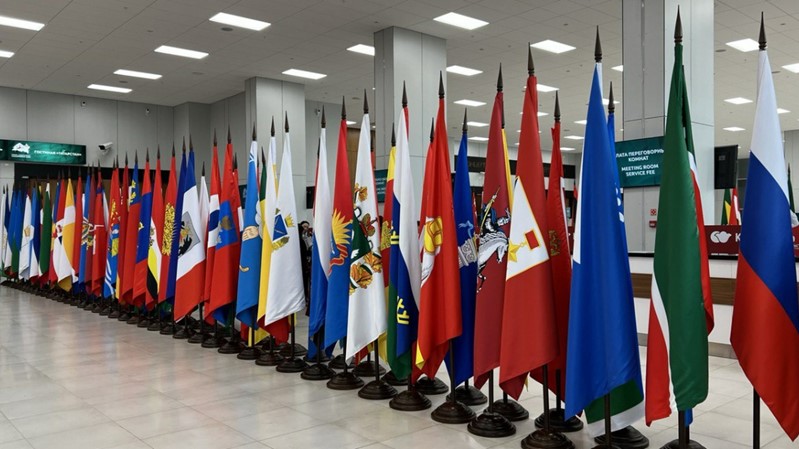The recent BRICS summit in Kazan, Russia, marked a turning point in global geopolitics, emphasizing the bloc’s expanding influence and challenging the Western-dominated world order.

The BRICS Expansion
The summit showcased the forum’s continuous expansion. It was the first time that states like Iran, the UAE, Ethiopia, and Egypt attended the summit as its full members. Their membership was announced at the 15th BRICS summit. The 16th summit in Kazan continued the process of expansion, as it added 13 new countries as ‘partners’. Although they are not yet full members, they are on the path. Out of these thirteen, 4 are from Southeast Asia. It includes Malaysia, Indonesia, Vietnam, and Thailand. Southeast Asia is also a region where the US, for the past few years, has been trying to establish its footprint. But the fact that BRICS has already opened its doors to these countries’ future membership means the US policy in the region to wean it away from the influence of China (and Russia) continues to be ineffective. Other nations added to the forum include Algeria, Belarus, Bolivia, Cuba, Kazakhstan, Nigeria, Turkey, Uganda, and Uzbekistan.
The pattern of expansion definitely shows that BRICS is seeking to maintain its global character. It has members from Asia, Africa, Central Asia, Middle East. With Turkey’s inclusion as a partner country, BRICS has now partially entered Europe and NATO as well.
The BRICS Perspective
No one perhaps could have better explained the BRICS perspective than Ethiopia’s Prime Minister Abiy Ahmed. Why? Ahmed was once a close ally of the West. In 2019, he was also awarded a Nobel Peace Prize – an award that often goes to people closely integrated with the Western vision of the world. Five years later, when Ahmed met with the Russian president, he sounded like a completely different man who began his meeting with the Russian President by congratulating – rather than taking a dig at the US and its allies in Europe and North America – him “on maintaining economic resilience during a difficult period. This period was not easy for Russia, but under your leadership you have succeeded to maintain the economic resilience which might be exemplary for most of us”.
Why did he decide to speak well of Russia and Putin? One could easily draw attention to the charge sheet the US Department of State published against his government in 2022. But we all know such charges of war crimes are often brought forward only when previously vassal states (and leaders) decide to follow an autonomous policy, which basically means, more often than not, going against the US. This is important insofar as the BRICS is turning out to be a space where countries unhappy with the US-led world order gather to talk about alternative possibilities, i.e., a possibility of a multipolar world order.
The UN Secretary-General seemed to completely agree with the BRICS summit’s agenda of multipolarity when he said, without mincing any words, that:
“no single group and no single country can act alone or in isolation. It takes a community of nations, working as one global family, to address global challenges. Challenges like the rising number of conflicts. The devastation of climate change, pollution and biodiversity loss… Rising inequalities and lingering poverty and hunger… A debt crisis that threatens to smother plans for the future of many vulnerable countries…”
Is it Reversible?
In the West, leaders took too long to take BRICS and what it stands for seriously. Now that BRICS has surfaced as a super serious challenge, the West lacks any credible way to push it back. Granted that the presence of the UN Secretary-General at the summit does not mean much, it still carries a powerful symbolic meaning insofar as BRICS is no longer an exclusive club of what policymakers in Washington like to refer to as “revisionist states”. If so, the UNO now, too, stands as a ‘revisionist’ organization. From the US perspective, any country or international actor not subscribing to Washington’s position is ‘revisionist’ insofar as it seeks to reverse the present US-led world order. However, the problem with this position is that states that cannot be strictly called revisionists are increasingly located in Europe only. The rest of the world seems to be moving in a different direction.
As mentioned above, the US-led West seems to have no significant leavers to pull to force-change this direction. Still, it does have policy options that it can utilise for the better. Instead of provoking and supporting wars, such as those in Ukraine and Gaza and such as those being provoked around Taiwan, the US would be better off in a scenario where it changes this policy in favour of promoting real peace. This will require Washington to accept that its position as the hegemon may no longer be possible, neither as the de facto global reality nor as something it can choose to impose forcefully.
Salman Rafi Sheikh, research analyst of International Relations and Pakistan’s foreign and domestic affairs, exclusively for the online magazine “New Eastern Outlook”
